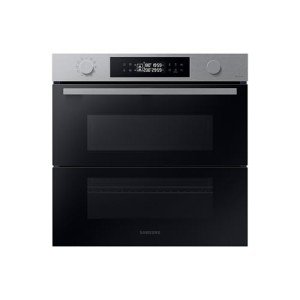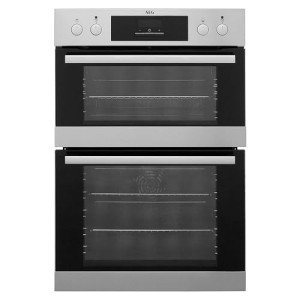The 10 Scariest Things About Oven Built In
페이지 정보

본문
Understanding Built-in Electric Ovens: A Comprehensive Guide
In contemporary kitchens, built-in electric ovens have ended up being a basic function, providing benefit, effectiveness, and a sophisticated combination into kitchen design. This post aims to inform house owners and cooking lovers about the benefits of built-in electric ovens, key considerations when picking one, and upkeep tips to guarantee long-lasting performance.

What is a Built-in Electric Oven?
A built-in electric Oven built in is developed to be installed within kitchen cabinetry or walls, perfectly blending into the kitchen's architecture. Unlike standalone ovens, these models save floor area and can be positioned at eye level, assisting in easy access and tracking while cooking.

Benefits of Built-in Electric Ovens
- Space Efficiency: These ovens make use of vertical space, making them ideal for smaller sized kitchen areas or those aiming to take full advantage of counter space.
- Visual Appeal: Built-in ovens provide a tidy and contemporary look that boosts the kitchen's general design.
- Ergonomics: They are set up at comfy heights, decreasing the pressure on the back and knees, specifically when packing or discharging meals.
- Advanced Features: Many built in range oven-in electric ovens included modern functions like clever controls, oven built in convection cooking, and self-cleaning choices, which can make cooking easier and more effective.
- Improved Functionality: Models often consist of extra features such as multiple cooking modes, timers, and temperature level probes.
Secret Considerations When Choosing a Built-in Electric Oven
When choosing a built-in electric oven, numerous aspects need to be taken into consideration to ensure it fulfills your cooking requires and fits within your kitchen design.
Size and Capacity
Built-in electric ovens typically are available in various sizes. It's vital to measure the designated area to guarantee an appropriate fit. Here are typical sizes:
- Single Oven: 24 to 30 inches broad, appropriate for a lot of cooking tasks.
- Double Oven: Two separate compartments, enabling you to prepare multiple meals at various temperatures.
- Wall Ovens: Available in large sizes, suited for comprehensive cooking experiences.
Features
Selecting functions that line up with your cooking routines is vital. Consider the following choices:
- Convection Cooking: Distributes heat uniformly for consistent results.
- Smart Technology: Enables remote control and preheating through mobile phone apps.
- Self-Cleaning: Simplifies upkeep and cleaning processes.
- Steam Cooking: Adds wetness to dishes for much better cooking outcomes.
Installation Requirements
Built-in electric ovens need sufficient electrical circuitry and ventilation alternatives. It's suggested to speak with experts throughout the installation stage to meet electrical codes and guarantee safety.
Rate Range
The expense of built-in electric ovens can vary significantly from budget alternatives (₤ 600 - ₤ 1,200) to high-end models (₤ 2,000 and above). Consider your budget plan and cooking frequency when selecting.
| Price Range | Features | Best For |
|---|---|---|
| ₤ 600 - ₤ 1,200 | Standard functions, manual controls | Casual cooks |
| ₤ 1,200 - ₤ 2,000 | Convection, wise technology | Serious home cooks |
| Above ₤ 2,000 | Premium materials, advanced features | Expert chefs or premium cooking lovers |
Upkeep Tips for Built-in Electric Ovens
Making sure that an electric oven operates successfully includes routine maintenance. Here are some useful tips:
- Regular Cleaning: Wipe down the door and inside the oven after each use to prevent grease accumulation.
- Self-Cleaning Cycle: Utilize the self-cleaning function occasionally (if offered). Follow the maker's instructions for optimal effectiveness.
- Inspect Seals and Gaskets: Inspect the door seals for wear and tear to preserve cooking effectiveness.
- Adjust Temperature: Oven Built In Regularly check and adjust the oven's temperature for precision cooking.
- Expert Servicing: Schedule annual maintenance consult qualified specialists, particularly for advanced designs with various electronic components.
Regularly Asked Questions (FAQs)
1. Are built-in electric ovens more efficient than conventional ovens?
Yes, built-in electric ovens typically have better insulation and functions like convection cooking that can prepare food faster and uniformly, conserving energy.
2. Can I install a built-in electric oven myself?
While some helpful people might pick to try a DIY installation, it is advised to work with a professional to ensure safe and compliant setup.
3. How much power does a built-in electric oven usage?
Typically, built-in built oven electric ovens consume between 2,400 to 5,000 watts, depending on the design and functions. Constantly describe the producer's requirements for accurate figures.
4. Do built-in electric ovens require special cabinets?
Yes, built-in electric ovens need custom cabinets or wall enclaves that support their weight and permit appropriate ventilation. Make sure that the kitchen cabinetry adheres to setup guidelines described by the producer.
Built-in electric ovens are an important addition to any modern-day kitchen, using an array of functions that make cooking easier and satisfying. By understanding the benefits, choice requirements, and upkeep requirements connected with these builtin ovens, customers can make educated choices that line up with their cooking requirements and way of life preferences.
- 이전글15 Reasons Why You Shouldn't Ignore Railroad Settlement Multiple Myeloma 25.05.20
- 다음글See What Sash Windows Crawley Tricks The Celebs Are Using 25.05.20
댓글목록
등록된 댓글이 없습니다.

